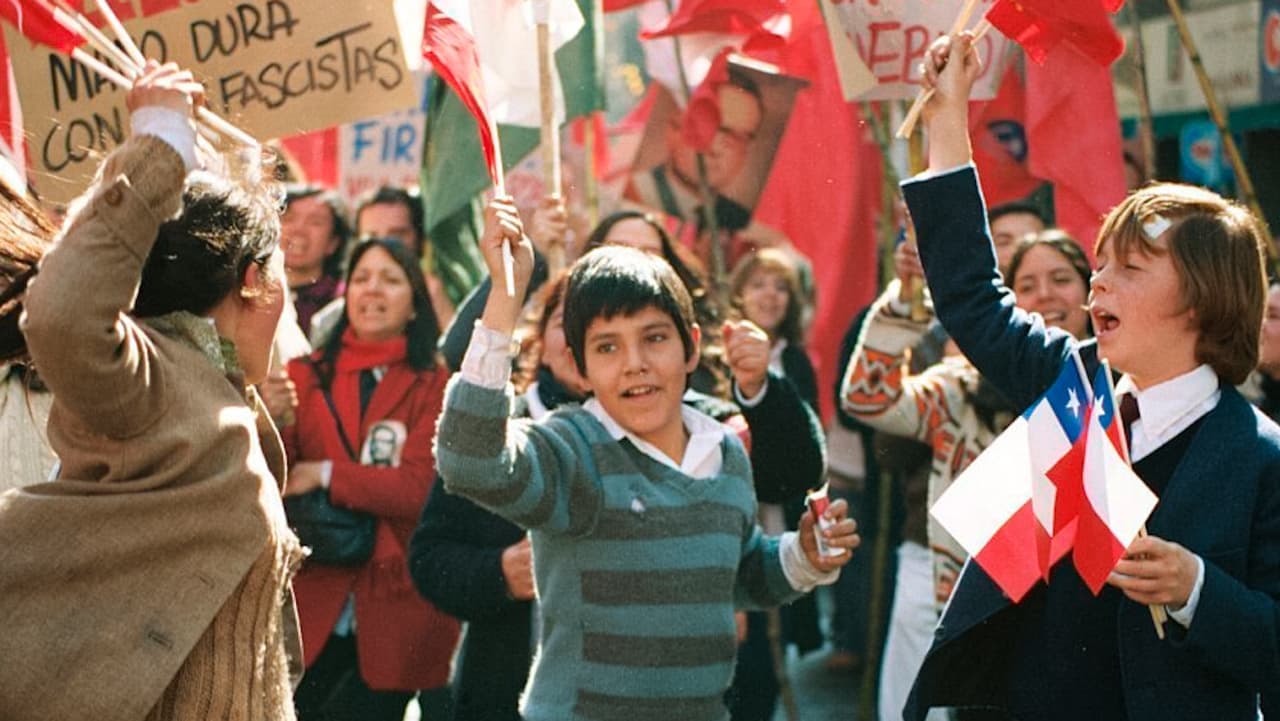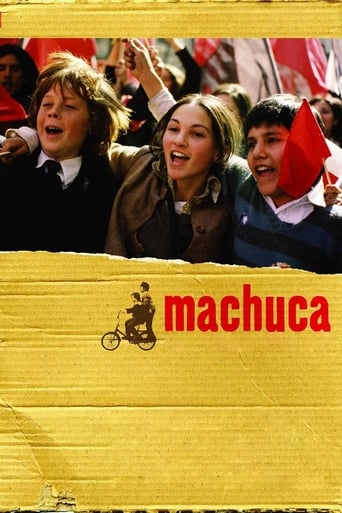

I stumbled upon this film whilst flipping through channels. I quickly set the language to the original Spanish, I was so engrossed.I lived in Chile during the sixties and seventies, as a child and a teenager. I was one of the 'privileged class', and some of the scene were uncomfortable for me. But that's okay - they were meant to be.From a visual standpoint, the film is impeccable. But more importantly, it subtly brought out the contradictions within Chilean society; one line, that of Francisco Reyes, who plays the otherwise minor role of the Gonzalo's father, Patricio Infante, summarises the attitude of the moneyed class perfectly: "Socialism is perfect for Chile...just not for us." This should be required viewing for any serious student of Latin American history. Without pretension or melodrama, it presents - in the microcosm of Father Whelan's school and the lives of his students - all that was wrong and all that could have been right, in Allende's Chile.
... View MoreIn 1973, in Santiago of Chile of the first socialist president democratically elected in a Latin-American country, President Salvador Allende, the principal of the Saint Patrick School, Father McEnroe (Ernesto Malbran) makes a trial of integration between students of the upper and lower classes. The bourgeois boy Gonzalo Infante (Matías Quer) and the boy from the slum Pedro Machuca (Ariel Mateluna) become great friends, while the conflicts on the streets leads Chile to the bloody and repressive military coup of General Augusto Pinochet on 11 September 1973, changing definitely their lives, their relationship and their country."Machuca" is a touching and realistic tale of friendship and coming to age in times of military coup in Chile. The Chilean director Andrés Wood made this fantastic movie following the political genre of Costa Gravas, but with a subtle drama with two children getting conscience of the fight of classes and the changes in their country by force and violence. The story in some moments seems to be a documentary so perfect the direction and acting are. The debut of the two lead actors, Matías Quer and Ariel Mateluna, is awesome: the eyes of the silent Matías Quer disclosing reality and the facial expression of Ariel Mateluna are amazing. "Machuca" is a highly recommended movie, and for the younger generations slightly see what happened in the 70's in South America and particularly in Chile. A few figures about Pinochet's dictatorship: 30,000 Chileans were killed; 100,000 Chileans were arrested without a trial; 22,000 students were expelled from the universities; 150,000 Chileans were exiled. My vote is ten.Title (Brazil): "Machuca"
... View MoreI knew nothing about this movie when I won a couple of tickets to see it in a local Film Festival.I'm a 20 year-old Mexican and I didn't know what happened in Chile those years. Although you see the political and social conflict through the eyes of a boy, the narrative is far from naïve. The conflicts that Gonzalo (Matías Quer) lives are real for a high class boy trying to grow up in a country that's changing fast everything he knew. Is because of the friendship he makes with Pedro Machuca (Ariel Mateluna), a child who lives in an impoverished community, that he gets in touch with other side of the story. The acting of Manuela Martelli is as always wonderful. She is one of the best young talents in Chile. "Machuca" is a very touching well-written story. I think everyone has to know what happened then. After the movie I went home and started to look after the information and facts that are showed in the film. This movie opened my eyes into another reality.It's an unforgettable film. By far one of the best I've ever seen.
... View MoreThis is the story of the rich versus poor at the time of the 1973 military junta in Chile which took out Salvador Allende and replaced him with a military junta headed by Pinochet.Two young school boys, one rich and one poor, befriend each other. The rich one invites the poor one, Pedro Machuca, into his world of relative wealth. Machuca enjoys it and takes to it like a fish to water. However, changing political events in Chile change their relationship as the military takes over things.A good film, almost documentary like, which gives us a much better view of the events in Chile. Because of the political nature of the film and because Chile remains friends with the U.S. it seems unlikely it will play in most places in the U.S. Hopefully they will come out with a DVD eventually, but so far none in sight.
... View More